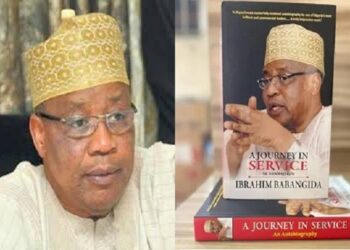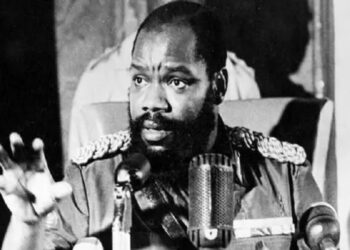Introduction
In the shadowed recesses of Nigeria’s history lies a haunting chapter often spoken of in hushed tones, passed down in fragments from one generation to the next—the Nigerian Pogrom. Between 1966 and 1970, a series of violent massacres and forced displacements swept across the nation, targeting the Igbo people with brutality that would forever scar Nigeria’s landscape and soul. These events became the harbinger of a greater tragedy, setting the stage for the devastating Nigerian Civil War, also known as the Biafran War.
“Echoes of Biafra” invites young Nigerians to journey back in time, to feel the heartbeat of a nation once rife with possibility but torn apart by mistrust and ethnic tension. Through this series, we will uncover the stories, the voices, and the resilience that lived on amidst the ashes. Each chapter of this series serves as both a remembrance and a warning—a call to today’s generation to understand the weight of history so that we may never again tread the path that led us there.
Stay tuned as we begin this journey, peeling back the layers of our past to reveal the truths, the heroes, and the lessons that echo through the Biafran story.
Week 1: Setting the Stage – The Pre-War Triumphs and Tensions in Nigeria
In the years before the Nigerian Civil War, the Igbo people stood as a testament to what resilience, intelligence, and dedication could achieve. Post-independence Nigeria was marked by aspirations and the eagerness to develop a nation fresh from colonial rule, and the Igbos played a central role in shaping this vision. From commerce and industry to education and government, the Igbo people were pioneers and trailblazers, using their unique talents to build a thriving, modern Nigeria. Yet, beneath these successes, there lurked a growing undercurrent of envy, resentment, and calculated hostility—a hostility that would eventually be weaponized to ignite a terrible conflict.
The Triumphs of the Igbo People: Success Before the Storm
By the early 1960s, the Igbo were renowned for their industrious spirit and drive to excel. They had risen to positions of influence across all sectors, often setting standards that other Nigerians and Africans sought to emulate. Chief Sir Louis Odumegwu Ojukwu, for instance, became Africa’s first multimillionaire, establishing vast business enterprises and amassing one of the continent’s greatest fortunes. His success represented the entrepreneurial spirit that defined the Igbo people, a community that turned Nigeria into a land of opportunity, believing wholeheartedly in the power of progress.
Dr. Nnamdi Azikiwe, another Igbo icon, became Nigeria’s first president and was widely regarded as one of the most educated men in Africa at the time. His vision for a united, prosperous Nigeria inspired many, both in Nigeria and abroad. Igbo professionals held significant positions in the civil service, banking, medicine, and the legal sector, while many Igbo students dominated academic fields at Nigeria’s top universities. The Igbo were not just participants in Nigeria’s development—they were its architects, innovators, and leading lights.
Building Resentment: Statements and Strategies that Set the Stage for Conflict
Despite these contributions, there were those who viewed Igbo success not as Nigeria’s success, but as a threat to their power and influence. Resentment began to grow, particularly among politicians in the Northern Region, who feared being eclipsed by Igbo achievements. This resentment was not hidden but vocalized in inflammatory statements that portrayed the Igbo as an adversarial ethnic group, sowing the seeds of hatred. Sir Ahmadu Bello, the Premier of Northern Nigeria, was one such figure. He made statements that deepened the ethnic divide, remarking, “The Igbos are a type of people whose desires need to be controlled.” In another instance, he is reported to have said, “The Igbos are dominating Nigeria’s economy; it is our duty to check their influence.”
These remarks fanned the flames of resentment and contributed to creating an atmosphere of hostility and distrust toward the Igbo community. The Northern Nigerian government, led by figures like Bello, used political machinery to portray the Igbos as “invaders” who had overstepped their boundaries, thus justifying actions against them. This narrative became the groundwork for a calculated strategy to limit Igbo influence, stoking anger and resentment against a people who had merely sought to uplift their community and contribute to Nigeria’s growth.
The 1966 Coup: A Justified Rebellion, Misrepresented
The coup of January 1966, led by Major Chukwuma Kaduna Nzeogwu, is often painted as an “Igbo Coup,” a label that has fuelled anger and justified violence against the Igbos. However, an in-depth look reveals that this was far from the truth. The 1966 coup was driven by a group of young Nigerian military officers from multiple ethnic backgrounds, including Igbo and Yoruba, and was not an attempt to seize power for the Igbo people. Nzeogwu himself, though Igbo, was Northern-born, while Major Emmanuel Ifeajuna, another prominent figure in the coup, was also Igbo. Adewale Ademoyega, a Yoruba officer, was equally central in the coup’s planning and execution. Their aim was not regional dominance but rather to root out corruption and address perceived failings of those they believed were leading Nigeria toward ruin.
The coup was directed against figures from various regions, not just the North. Its purpose was to address corruption, build a better Nigeria, and hold to account leaders seen as harmful to the nation’s future. Yet, following the coup, a narrative was spun that painted it as an “Igbo attempt to dominate Nigeria.” This dangerous misrepresentation fuelled anger across Nigeria, particularly in the North, setting the stage for massacres and persecution of Igbo people.
Jealousy and Fear as Catalysts for War
What we witnessed in the years leading up to the war was a calculated campaign to turn Igbo achievements into a source of hatred and division. Instead of celebrating the economic contributions of men like Sir Louis Ojukwu or the intellectual contributions of Dr. Nnamdi Azikiwe, certain political leaders weaponized envy and sowed seeds of disunity, pitting regions against each other. This bitterness exploded in the form of anti-Igbo pogroms in 1966, resulting in the brutal massacre of tens of thousands of Igbo men, women, and children across Northern Nigeria.
The hatred against the Igbos was not born out of genuine grievances but out of jealousy and fear. As the Igbo people excelled, their success became a mirror reflecting the stagnation of other regions, and instead of seeing this as a motivation for growth, certain leaders chose to ignite conflict. This deliberate strategy of division led to one of the most devastating periods in Nigerian history—the Biafran War.
A Warning against History Repeating Itself
As we present “Echoes of Biafra,” Igbo Facts and FAIR aim to remind young Nigerians of this painful history—not to dredge up division, but to prevent it from ever occurring again. Today’s generation must understand the forces that turned a prosperous, united Nigeria into a land of hatred, bloodshed, and loss. The labelling of the 1966 coup as an “Igbo Coup” was a calculated misrepresentation, a political weapon used to ignite ethnic conflict and justify horrific violence.
As we reflect on this, it is crucial for modern Nigeria to recognize the dangers of such narratives. The achievements of any Nigerian—regardless of ethnicity—are a triumph for all. Envy, suspicion, and deliberate misrepresentation can lead a country down a dark path, and we must remain vigilant against the voices that would once again stoke division. In remembering Biafra, we are not merely recalling a conflict; we are learning a lesson that must resonate today.
**Echoes of Biafra is published by IgboFacts in partnership with the Forum for the Advancement of Igbo Race (FAIR)
Next: We examine the events following the 1966 coup, leading to the declaration of the Republic of Biafra. For more insights, historical documentation, and interactive resources, visit Igbofacts.com.










